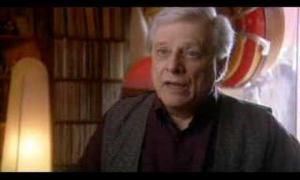Rhetorical Recap: How the “quirkily dull” Gary Johnson missed his shot
September 12, 2016
It's not the "What is Aleppo?" remark that's doomed the Libertarian candidate's chances. It's his communication style.
It hardly seems fair for Gary Johnson to be punished for a knowledge gap he immediately admitted with regret, especially on the morning after Donald Trump obscured his own ignorance with lies and bluster at the “Commander-in-Chief Forum.”
Circumstance, constituency, and public speaking drawbacks help explain the double standard. Herewith, a look at the rhetoric of the Libertarian Party nominee.
***
Johnson often summarizes his policy stances as “Fiscally conservative, socially liberal, skeptical about our military interventions.” It’s a schematic yet substantive self-characterization; contrast it with “I alone can fix it” for Trump and “Progressive who gets results” for Clinton. The statement evokes that diamond-shaped double-axis grid Libertarians have distributed in palm cards for decades: the Nolan Chart, named after a founder of the party. At the National Press Club, Johnson called the Republicans and Trump “socially intolerant,” and the Democrats and Clinton as government spendthrifts, “free everything.” The impersonal nature of these potentially effective contrasts constitutes yet another contrast between Johnson and the two major party nominees. He attacked issue positions, not individuals.
Johnson projects an active mind. He answered the editorial board’s questions with analysis, irony, and reflectiveness. The following comment to the Times board now exhibits all three qualities with extra poignance in the wake of his “What is Aleppo?” mental blank:
JOHNSON: “Well I did serve two terms as governor of New Mexico and I had never been involved in politics before, and my response to a lot of these complex questions were that I don’t have the answers but it does need to be part of a discussion and a debate and that I did move the ball forward because I insisted that the ball needs to move forward. I realize that I walk out of here and [you may say], “This guy doesn’t know anything.” I’d like the takeaway to be: “He knows enough not to state what he doesn’t know.”
That’s a variation on the Socratic definition of wisdom. Hard to imagine on a bumper sticker.
Johnson is an optimistic Libertarian. He said that free markets will take care of climate change, that “coal is bankrupt.” Similarly, he contended that ISIS will flame out if we just let it. These are certainly distinctive arguments and they might have appeal to voters, many of whom might welcome policies that “leave them alone.” The rhetorical trouble springs from the manner by which he makes these arguments.
Johnson is just not a talented or practiced speech giver. That may help explain why there are so few of them to be found online. His eyes can go glazed—really not good for a marijuana advocate and business executive—and his voice tends to a monotone. He lacks affect. He especially lacks an array of purposive affects essential to good oratory. He seems more comfortable, eloquent, and revealing in discursive mode.
Johnson has been trundling along around 10% in the polls. He told both journalist audiences that if pollsters posed a three-way choice in their opening question he’d be at 20%. He’s probably right that he does not get top billing from most pollsters, but 20% stretches things; in particular, it presumes, contrary to most social science, that Independents and undecideds are a bloc. The GWU Battleground Poll conducted at the end of August found 42% of likely voters for Clinton, 40% for Trump, 10% for Johnson, 3% for Green Party nominee Jill Stein, and 5% undecided.
And yet…Johnson had a shot in early September. Our poll found tremendous discontent with Clinton and Trump, a Clump attitude if you will. And Johnson has been on the move in Twitter. My colleague Michael D. Cohen shows how Johnson has gained followers and benefited from retweets at much higher rates than Clump this summer. Johnson’s volume in both metrics is much smaller, but his Twitter support clusters among the college educated, a group containing an important swing vote, especially with respect to Republican women. Johnson’s Twitter ranks also concentrates in several battleground states. That’s social media tinder ignitable by news media sparks. That is what happened with Bernie Sanders.
A spark scenario for Johnson is not hard to imagine: he clears the 15% bar, makes the debates, and comes across to college educated voters unhappy with their main choice as the reasonable candidate on the stage. He could reach that 20% in popular votes, as H. Ross Perot nearly did in 1992. More important, he could probably affect the outcome in a few states, including battleground states. Most important, his proposals would get a greater hearing.
For weeks, circumstance and constituency were aligning for a Johnson growth spurt. Then he failed to identify the largest city in Syria and that became a trending topic among news attentives. A rise in the polls seems much less likely now, not just because of bad luck, but because Johnson is so quirkily dull. Fessing up can be charming, but Johnson did so abashedly. Fiorello LaGuardia, he of the immortal “When I make a mistake, it’s a beaut,” Johnson is not. Nor does he seem possessed of any extroverted trait capable of drawing a crowd, like Sanders and Perot.
For these reasons, his prospects to become a force in this contest seem much reduced.



